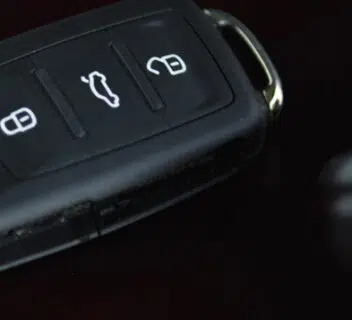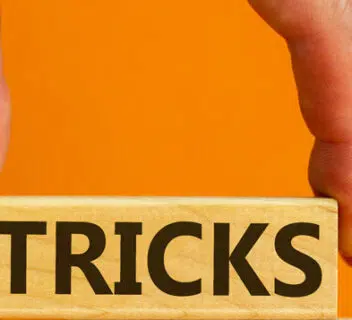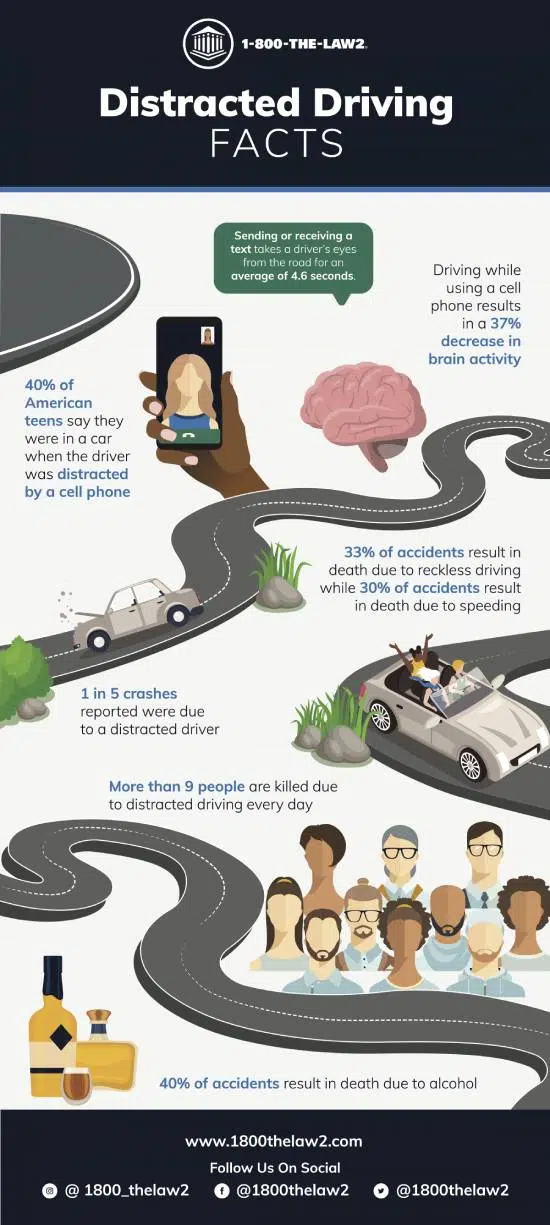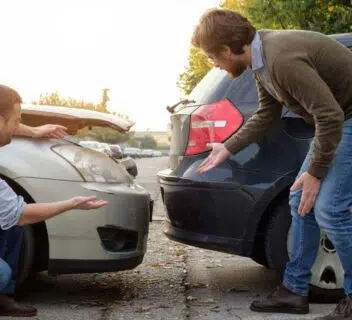After a car accident, chances are that you’re feeling confused, frustrated, and anxious about having to file a claim. It makes sense that you’d feel this way. You’re not only recovering from the trauma of the accident, but there may also be complicated legal and financial issues. Whether your accident occurred in Texas, California, or elsewhere, it is essential to learn claim filing deadlines.
Ready to speak to an attorney? Call us at 1-800-THE-LAW2 to connect to an experienced car accident attorney in our network. Consultation is free and confidential, so there’s no downside to contacting us for a case evaluation. Of course, right now you may just want to know about the legal deadlines affecting your claim. Let’s take a closer look at the deadlines and how they work.
Questions that this article will help you to answer: Do you have to file an accident claim? | How long after an accident can you file a claim? | What are the statute of limitations for filing a claim in California? | What are the Statute of Limitations in Texas for filing auto accident claims? | What do you need to start a claim?
Do You Have to File a Claim After an Accident?
If you’re in a car accident, you don’t have to file a claim for damages. It’s not required that you do so. Still, if you sustained losses, whether property damage, medical expenses, lost wages, pain and suffering, or something else, the law might entitle you to compensation. As such, it is sensible under those circumstances to sue for damages.
Many of you are probably concerned as to whether you even have a legal claim for damages. Too often, injury victims don’t pursue compensation, even though they would be entitled to do so under the law. There are a variety of reasons: negative perception of lawsuits, concern that litigation is expensive, and the time demands of litigation.
Don’t worry. Many of these concerns aren’t as serious as you might think. We encourage you to speak to an attorney for guidance. The experienced car accident attorneys in our network offer free consultations, and will help you identify whether your legal claim is actionable.
If you do decide to move forward with an attorney in our network, know that representation is on a contingency basis. In other words, they don’t get paid until you do. So you essentially don’t pay ANYTHING out of pocket to litigate your case. If you secure compensation, then they take a percentage cut of your winnings.
Car Insurance Claim Time Limits
With an attorney, you can sit back and relax, and have them handle every aspect of your claim. It sounds great, but you must seek legal assistance ASAP. Delaying too long can cause problems in ALL states. As a reference example, we’ll run through the deadline issue in two large states: Texas and California. Just know that, even if your case is in a different state, the same basic principles will apply.
Texas Statute of Limitations For Car Accident Claims
How long do you have to file an insurance claim in Texas? Car accidents fall under the personal injury umbrella. According to the Texas Civil Practice & Remedies Code section 16.003, a personal injury plaintiff has two years from the date of the accident to file a claim. The statute of limitations applies to injuries caused by negligence, intentional actions, and wrongful death cases. If you file after the two-year deadline has passed, the case is dismissed and there is no opportunity to collect damages, such as:
- Medical expenses
- Physical and occupational therapy
- Prescription medication
- Trauma counseling
- Lost wages
- Reduced earning capacity
- Pain and suffering
- Mental anguish
- Emotional distress
Texas courts honor specific exceptions to the filing deadline. One exception is if the plaintiff is currently of unsound mind or is a minor. According to Texas Civil Practice & Remedies Code section 16.001, the clock starts running when the person is either deemed mentally sound or turns 18. The other exception is when the defendant in the car accident or other personal injury case leaves the state. As per Texas Civil Practice & Remedies Code section 16.063, the clock starts when the defendant returns.
California Statute of Limitations For Car Accident Claims
How long do you have to file an insurance claim in California? In California, car accident plaintiffs have two years from the date of their accidents to file legal claims. According to California Code of Civil Procedure section 335.1, the statute of limitations applies to negligent and wrongful acts, including those resulting in untimely deaths. If the filing concerns vehicular damage exclusively, the statute of limitations is three years from the date of the incident.
Sometimes, car accidents involve government vehicles, such as city buses. In these instances, plaintiffs have six months to file a legal claim against the local government or municipality. There are also additional procedural issues that you’ll have to keep in mind. If you’ve delayed, however, don’t worry. There are several exceptions to the California deadlines.
Exceptions to the Statute of Limitations in California
In the state of California, if the injured victim is a minor, the statute of limitations does not begin until their 18th birthday. If the injured victim is incapacitated, unconscious, or incapable of sound judgment, the clock doesn’t start to count down until the person is deemed mentally fit. Other exceptions include unavailable defendants, such as those who have left the state or are in prison. Bankrupt defendants may also qualify for an exception, as courts do not move forward with claims until bankruptcy processes are complete.
The Claims Process
To begin the process of filing a claim after a car accident, you’ll want to have some initial documentation ready. For example, make sure to obtain copies of the medical and police reports. Submitting evidence as soon as possible after the accident increases the likelihood that you’ll receive timely compensation. In many cases, it’s possible to settle claims early and sidestep the uncertainty of trial litigation.
Don’t do any of this on your own. That’s a recipe for disaster. Instead, consult a car accident attorney who can help you navigate the claims process and will represent your interests at every stage. They will also serve as a repository of knowledge, answering any questions you might have. Your attorney has a duty to handle your case in a timely manner. They are required by law to move forward with your claims before the statute of limitations expires. If you hire an attorney, you’re safe from any future procedural hiccup.
Consult a Car Accident Attorney who can help you navigate the claims process and will represent your interests at every stage.
Call a Trusted Car Accident Attorney Today
If you need to file a car accident claim, get started today. Depending on the nature of the accident, it may be possible to secure compensation to cover medical expenses and lost wages, among many other losses. Call 1-800-THE-LAW2 today to discuss your case in detail with an experienced car accident lawyer. Consultation is free, so don’t delay!
FAQs – How Long After an Accident Can You File a Claim
How Long After an Accident Do You Have to File a Claim?
There is a deadline that applies to every claim, known as the statute of limitations. If you do not file your claim before its statute of limitations period runs out, then courts will automatically dismiss the claim later. This can prevent you from securing any compensation.
Bear in mind that the statute of limitations varies depending on the type of claim, and the jurisdiction in which you’re filing the claim. Negligence claims in California have a two-year deadline, for example. The same negligence claims in New York have a three-year deadline! Attorneys can help you make sense of all the complexity.
If I Go to the Hospital After a Car Accident, Who Pays?
There are several different possibilities. 1) if you have health insurance, your provider may cover the bills; 2) if you have auto insurance, you could submit a claim and try to get the provider to cover the bills; and 3) if you don’t have insurance, or if your providers are refusing to cover the costs, your attorney can get you connected to medical providers who will bill you on a contingency basis.
What does payment on a contingency basis mean? It’s actually very useful, and not too complicated. Basically, it means that the medical provider agrees to provide care temporarily, at no cost. They will be paid later, if and when you secure compensation in your case.
Do You Have to File a Claim After an Accident?
You don’t have to file a legal claim after you’ve been in an accident. It’s not required by law that you pursue compensation, but if you want to secure compensation for your injuries, then it’s a strategic necessity. Be aware that there is a deadline for how long you can wait before filing a claim. This is known as the statute of limitations period.
As for insurers, every state and policy is different. Some states, like Nevada, require that you notify the insurer immediately after an accident. Some policies require that you begin the claim procedure within 24 hours of the accident. Just don’t move forward until you’ve spoken with an attorney, as the provider could deny or undervalue your claim.
How Long Can a Car Insurance Claim Stay Open?
Car insurance claim regulations vary from state to state. There is no universal rule. In California, for example, a car insurance claim can stay open for up to 40 days. During this time, the provider determines whether to accept the claim. Once they make that determination, the claim stays open for another 30 days so that settlement can occur.
How Long After a Car Accident Can You Go to the Hospital?
You should go to the hospital as soon as possible after a car accident so that a physician can evaluate you and determine whether and how you’ve been injured. If you have been injured, this provides a record for evidence. Then, you can be put on a treatment plan and you’ll have a clear understanding of what sort of losses you suffered physically.
You can go to the hospital after any amount of time after the car accident, to resolve any continuing issues or to identify new ones. It’s not uncommon to discover that you have hidden injuries even years down the line. Some injuries don’t appear until much later, as they’re not obvious in the initial stages.
How Long Does it Take to Get a Settlement Check After a Car Accident?
Whether you get a settlement check depends on the defendant’s hostility. It also depends on the negotiation strategy employed by your attorney. In some cases, the defendant will push back hard and refuse to offer a fair settlement. You may be forced to keep plugging away at the case, potentially even threatening trial litigation. As such, the timeline for getting a settlement can vary enormously. It can take anywhere from a few weeks, to a year or more.
Can You File a Claim Right After Getting Insurance?
You can file a claim as soon as your insurance policy has become active. Do bear in mind that policies can differ quite a bit, so be sure to evaluate yours thoroughly. This is important, as your policy coverage may contain restrictions that are not considered standard.












